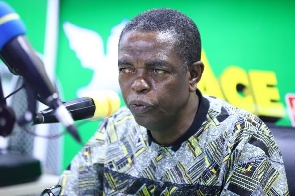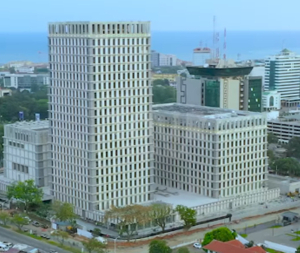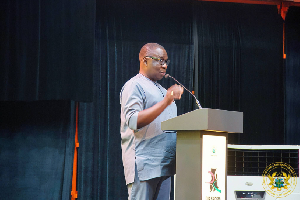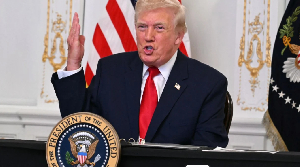Kwesi Pratt Jnr, the Managing Editor of the Insight newspaper has disclosed that the United States of America has embarked on a new model for its military bases in other countries.
According to Pratt, the new structure of the military base is a departure from the old where the US erected huge structures in partner countries.
Pratt on Metro TV’s Good Morning Ghana was forced to offer education on the nature of US military bases after the host, Dr. Randy Abbey challenged his claim that the US has established a military base in Ghana.
Kwesi Pratt elucidated that the lily-pad style of bases has become the preference for the US as it is more efficient and cost-effective.
Below is the conversation on GMG
You remember Kwame Nkrumah’s statement that Africa should be a land without bombs but we've messed it up completely. Now we have a US military base on your soil, where is your Non-Alliance?
Randy Abbey: Kwesi, do we really have a military base in Ghana?
Pratt: You don’t know, you didn’t read the agreement in Parliament
Randy: You mean that chochopua (insignificant) thing?
Pratt: It is not chochopua at all.
Randy: When I see US military bases, I see what I see.
Pratt: You are so conservative and out of date that is why you talk like that. The new concept of military bases is called the lily pad. The lily pad is not a huge infrastructure with buildings. What we have here is on model of the lily pad. The lily pads are perhaps more effective.
What are lily pads?
The lily pads according to a Huffington Post story in 2012 are “small, secretive, inaccessible facilities with limited numbers of troops, spartan amenities, and prepositioned weaponry and supplies.”
Context
Kwesi Pratt was lamenting government seeming flirtations with the United States at a time when it is discussing with China over debt cancellation.
Pratt was concerned that the posture of government with respect to its relationship with US could scupper any chance of China cancelling its debt with the country.
He cited the visit of the Vice President of the US, Kamala Harris as another evidence of Ghana’s preference for the US over China.
General News of Saturday, 1 April 2023
Source: www.ghanaweb.com













